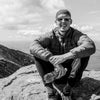FORMER PRO SURFER Sunny Abberton grew up with three younger brothers and a strung-out mother in Australia’s version of South Central L.A.: Maroubra Beach, a hardscrabble Sydney suburb known for both legendary big-wave surfers, including Sunny’s brother Koby, and gang-related violence—often involving a notorious tribe of watermen known as the Bra Boys, of which the Abbertons are members. In his filmmaking debut, Bra Boys, narrated by Russell Crowe, Sunny explores the gang’s history and the ways surfing can help break the cycle of drugs and poverty.
OUTSIDE: This isn’t a typical surf flick, is it?
ABBERTON: Surfing is a backdrop—it’s what we used to escape from heroin-addicted parents, crime, and jail. In America, basketball gets you out of the ghetto; for us it was surfing. I wanted the audience to understand why the Maroubra kids were throwing themselves on those rocks.
Yet, as surfers, you still felt oppressed.
For generations, it’s been a struggle about not being respected as legitimate members of society. In Maroubra, maybe because of our socioeconomic background, we were at the heart of it. We noticed it when we were eight years old and first started coming to the beach with the older guys. The authorities were like “Up against the wall, surfers.” We inherited that.
And that has led to continued marginalization?
Surfers have had this sort of hedonistic attitude, where we’re like “If they put in a parking lot, we’ll rip it out later.” But we need to be more political. Now is the time to stand up for our local culture and history. Surf culture is under some of the biggest threats it’s ever seen—from development, overcrowding, environmental issues, and local governments.
The Bra Boys have had a few brushes with the law—six months into filming, your brother Jai was accused of murder, and later acquitted. Do you think your film is objective?
We invited the police to participate, and the local government, too. We wanted them to get in there and say some nasty stuff about us. They wouldn’t. But I don’t think I painted us as angels. There are boys that definitely go too far and step over the line.
You founded the Mavis Abberton Foundation, named for your grandmother, to help at-risk kids discover surfing. What message are you trying to send them?
That no matter what you’re going through, you can channel your anger and frustration into an outlet like the ocean. Don’t tell a kid to go break into a car or steal something. Tell him, “If you think you’re tough, let’s go, buddy. There’s a 12-foot wave right in front of you.”
TELEVISION
E-Gadd!
Canadian adventurer Will Gadd gives nature TV a shot of adrenaline as host of Fearless Planet, now airing Sundays at 10 p.m. on the Discovery Channel. Gadd, 38, takes viewers to exotic locales from the Grand Canyon to the Great Barrier Reef, paddling, climbing, diving, and otherwise sticking his neck out to experience each place. “I get right in there,” he says. Indeed: In one episode, he survives a crash landing after his paraglider flies too close to his film crew’s helicopter. —Justin Nyberg
PLAYLIST
Canadian climber Sonnie Trotter redpointed the Path, a finger-wrenching 5.14 R route in Alberta, last August.
iPOD PLAYLIST: “Whole World Is Africa,” Black Uhuru; “Turn the Page,” Metallica; “Your Time Is Gonna Come,” Led Zeppelin; “Eulogy,” Tool; anything by 2Pac.
FAVORITE FLICK: The Shawshank Redemption (1994). “It beautifully represents the power of our spirit. Eventually, everyone gets what’s coming to them.”
FAVORITE BOOK: Still Life with Woodpecker, by Tom Robbins (1980). “One of the main characters is a wanted outlaw—and in some ways, every guy wants to be bad.”
